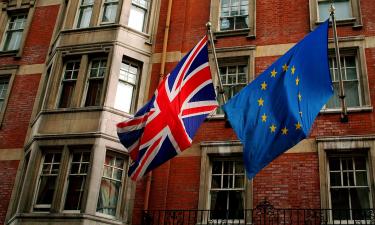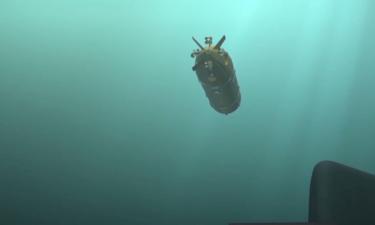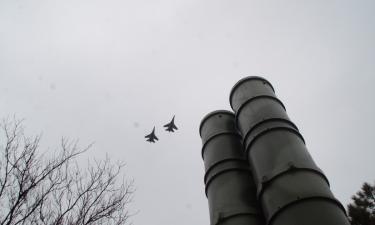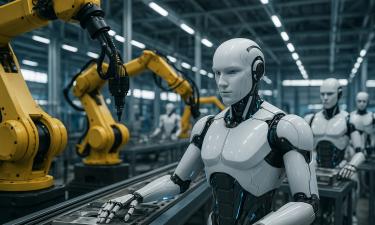Free Trade For Central Asia?
The Beijing session of the Council of the Heads of Government of the Shanghai Co-operation Organisation (SCO) engendered an unexpected subject with regard to the globalisation of the world economy.
The history of the SCO dates back to the 1996 Shanghai meeting between the presidents of five countries: Russia, China, Tajikistan, Kazakhstan and Kyrgyzstan. At first, forums were annually held at the top-level to discuss security in the zone "between Russia and China," - i.e. in Central Asia, especially in connection with the threat emanating from Taliban-controlled Afghanistan. From the spring of 2001, the forum started turning into a powerful, fully-fledged organisation (which Uzbekistan later joined). However, the economic component of the organisation's work was confined to the fact that poverty in Central Asia was a source of instability there and action had to be taken.
At present, the strategic aspect of the SCO has receded into the background, because the threat emanating from Afghanistan is no longer so urgent and the mechanisms for consultations between defence and intelligence agencies, just like the SCO anti-terrorist centre in Bishkek, have already become a reality. Consequently, "the economic" meetings between the premiers of the six SCO countries, which are held in autumn, have started acquiring special importance, while the heads of state discuss military-political issues in late spring.
The premiers' late September meeting in Beijing sprang a surprise on everybody. Chinese premier Wen Jiabao put forward an initiative to create a free trade zone within the framework of the SCO. Only a year ago it was obvious that Beijing clearly lacked ideas about the economic development of the territories to the west of China. It is beyond doubt that the point at issue is a new policy from the Chinese leaders, led by President Hu Jintao and premier Wen Jiabao.
Let us examine the nuances. Russian Prime Minister Mikhail Kasyanov said at the end of the Beijing meeting that the development of transport infrastructure, power engineering, environmental protection and especially the problem of drinking water would become the top priorities of SCO trade-economic co-operation. An important point is that these infrastructure projects are the necessary minimum under any models for the development of the situation in Central Asia.
The Chinese premier highlighted the same things but with different words. He talked about ensuring infrastructure for trade and investment in order to guarantee stable goods' circulation within the SCO, about the need to lift non-tariff barriers which are imposed as a result of the actions of customs, quarantine and transport services. All this, in his words, are the conditions needed to create the free trade zone that China is proposing to form by 2020.
The long-term programme of trade-economic co-operation within the framework of the SCO, which was approved in Beijing, covers precisely this period, i.e. until 2020. The heads of government will give the relevant economic agencies instructions to chooseseveral projects, even if they are small, where the parameters and model of economic co-operation within the framework of the Six can be tested.
There are no "Russian" or "Chinese" approaches any more - they were integrated in the final document of the Beijing meeting in advance. However, one must admit that the liberal, market idea of free trade in Central Asia was put forward by Beijing rather than the other SCO countries. Although the latter have expressed enthusiasm, they are still considering the idea.
It goes without saying that China has more experience in this field than Russia and all the other SCO member-countries. Firstly, this is because China is a more market-orientated country which started reforms in the early 1980s. China's foreign trade is several times that of Russia. However, the most important thing is the accelerated formation (with Beijing's active participation) of a free trade zone based on the 10+3 model, that is, the Southeast Asian countries which are part of the ASEAN group and the East Asian countries (China, South Korea and Japan). Interestingly, this programme is also designed for the period until 2020 and the same date is fixed in APEC documents, i.e. the organisation which unites all the economies of the Pacific region. Russia, though, has integration projects in the CIS plus rapprochement with the EU, which are going faster now than in the 1990s.
In principle, free trade is the direction in which the whole world economic system is moving. It is another matter that universal liberalisation reminds one of a receding horizon, as the failure of the regular round of World Trade Organisation negotiations held in Cancun (Mexico) showed. It failed because the interests of developed and developing countries are not the same. This is why the idea of creating regional free trade groups, each with it own specific features and pace of movement toward economic freedom looks more realistic. They facilitate preparations for joining the WTO and, in general, for world integration.
This principle is particularly appropriate in Central Asia. The matter is that although the SCO zone is often described as an area "from the Baltic to the Pacific", one should remember that the point at issue is first of all Central Asia. This is a very poor region with an economy that can be defined as "state capitalism" at best.
Relations between the two giants, Russia and China are very good in the political field and, at the same time, are full of problems in the economic sphere. The crux of these problems is that the time of "bilateral" trade is passing away to be replaced by an era of general principles and rules. The transition to these may be painful. The joint projects of Moscow and Beijing - and this precisely how the SCO can be defined - gives them the chance to find together many innovative solutions with regard to the economic development of this region, thereby bringing numerous benefits to the six SCO member-countries, including Russia and China.
Dmitri Kosyrev, RIAN
Subscribe to Pravda.Ru Telegram channel, Facebook, RSS!





